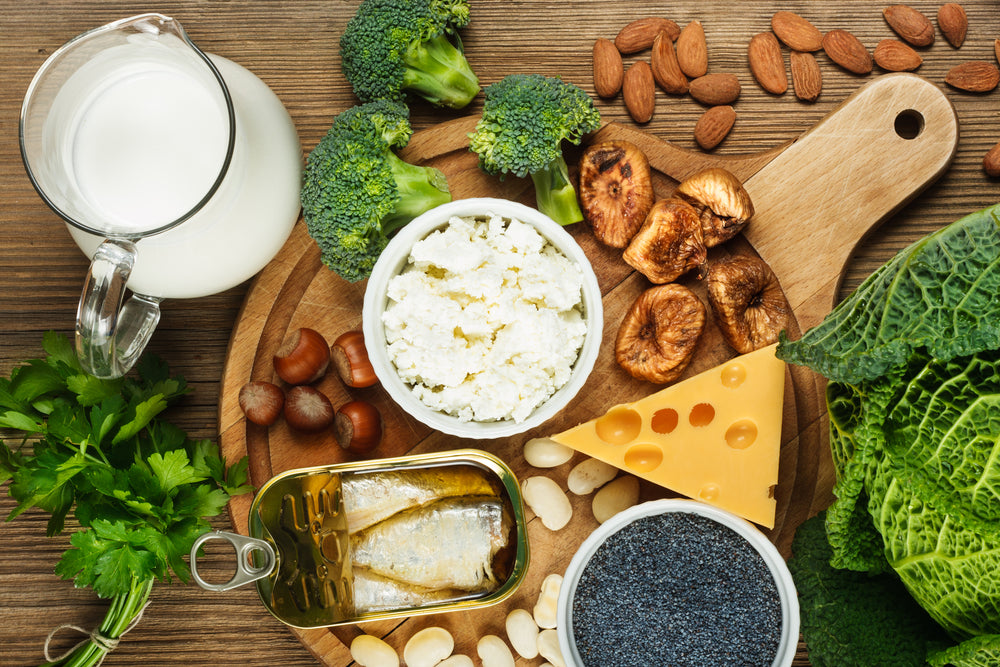Camel milk is a good source of calcium, protein, phosphorus, and vitamin C, and even helps present diabetes, allergies, and fatty liver disease. But who would have thought that camel milk also holds a higher concentration of calcium than cow milk?
We all know it is important for our bodies to have, that it keeps our bones strong and healthy, and that we need to consume a certain amount in order for it to be effective in our body. But we probably don’t often ask or even think about why it is important in ways other than what we were taught in grade school.
Bones are constantly changing and using the calcium stored in them, making it important to always have a sufficient amount in your diet. As you age, your bones break down more rapidly, which means you’ll need more calcium to prevent bone loss and osteoporosis – a disease especially common for postmenopausal women.
The fact is, calcium plays a bigger role in our bodies than just maintaining the health of our bones and teeth. Aside from contributing to bone strength, it helps the heart, nerves, and muscles work properly, as well as metabolic functions like nerve transmission, intracellular signaling, hormonal secretion, and vascular contraction. It could even help with other conditions like hypoparathyroidism, high blood pressure, and high cholesterol.
Let’s dive into the role calcium plays in our muscles functioning.

Muscle Contraction
Your muscles contract through a process known as the sliding filament theory. In this process, myofilaments inside your muscle fibers grab hold of one another and slide to produce a muscular contraction. However, this is unachievable without the presence of calcium.
Actin and myosin are the myofilaments that produce a contraction. To change the shape of the muscle, myosin grabs hold of actin via a myosin cross bridge, which is like a little arm. The cross bridge must grab on at a specific spot, but this is blocked by a molecule known as tropomyosin.
Tropomyosin is not only attached to actin but also to another molecule, troponin. Upon nervous system excitation for a contraction, calcium is released into the fiber. It binds with troponin and stimulates it to move tropomyosin, exposing the binding site for the myosin crossbridge. Because of the presence of calcium, your muscle can now contract.
Storage and Release
Muscles are made of individual fibers that contain myofibrils and the filaments needed for contraction. Each muscle fiber is enveloped in a sarcolemma. Within the sarcolemma lie not only myofibrils but also a sarcoplasm that contains necessary cellular components. Inside the sarcoplasm, the muscle stores the calcium necessary for contraction. When a nerve innervates the muscle cell, a signal to release calcium is sent, and calcium floods the muscle fiber.
Calcium and Fatigue
During exercise, if your muscular calcium runs low, you may experience fatigue. In fact, this may be a limiting factor to performance and exercise duration. Not having enough calcium can interfere with the action of actin and myosin, which can reduce the force of your muscular contractions. Another situation may be that calcium intake by the sarcoplasm is inhibited. In this state, contractions are prolonged, meaning the muscle does not spend as much time relaxing between contractions, which may lead to fatigue.
We obviously need our muscles in order to move around to do what we need to do each day, which goes to show how important calcium is – not just for our bones and teeth, but our muscles too.
The recommended daily intake of calcium is between 1,000 mg – 1,300 mg for people ages 4 to 71+ years old. For people ages 9-18, 1,300mg is recommended, while 1,200mg is for people on the higher end of the scale. So where can you get calcium from?
Other than supplements, here are some foods that provide calcium:
- Yogurt
- Sardines
- Cheddar cheese
- Milk
- Tofu
- Orange juice
- Salmon
- Cottage cheese
- Kale
- Broccoli
- Bok choy
- Watercress
So the next time you think calcium is only good for your bones and teeth, think again! And make sure to incorporate foods with calcium and that you are getting the recommended amount each day.

 Log in
Log in
